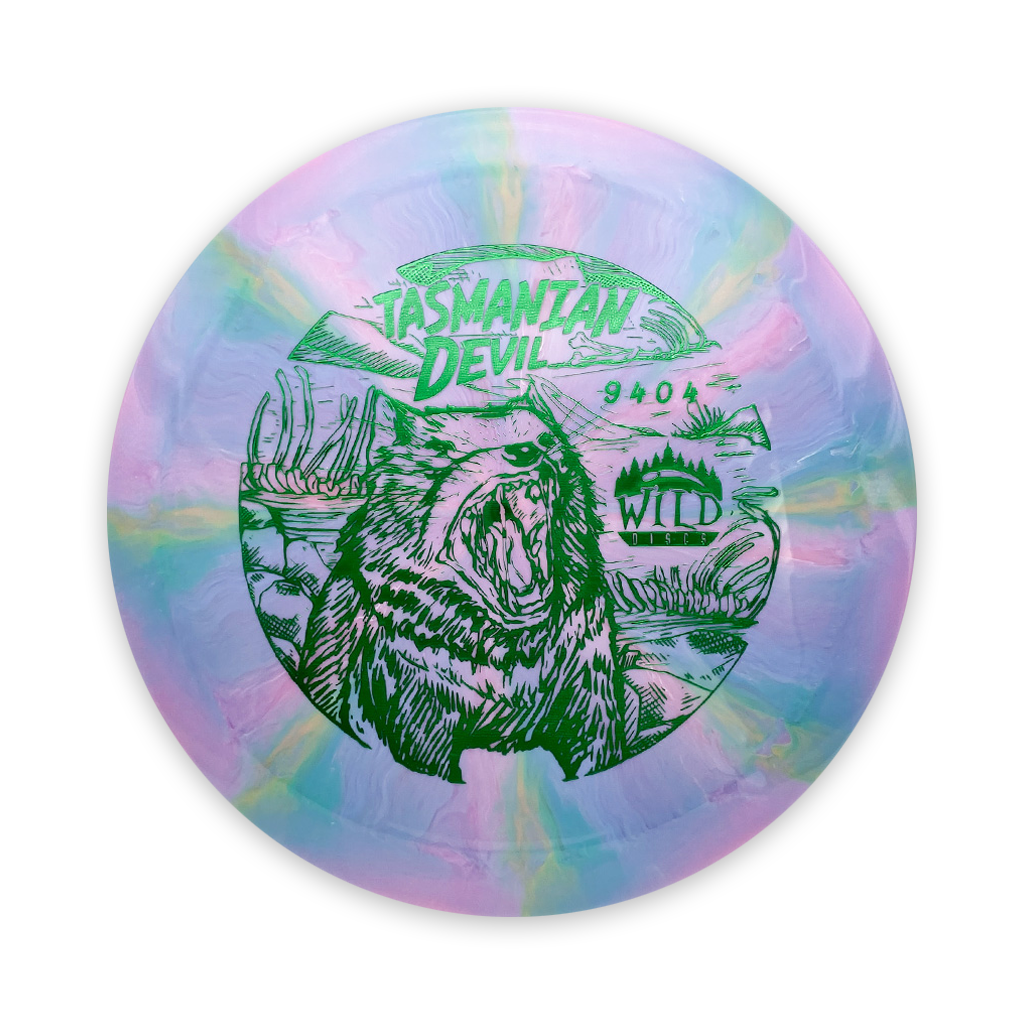
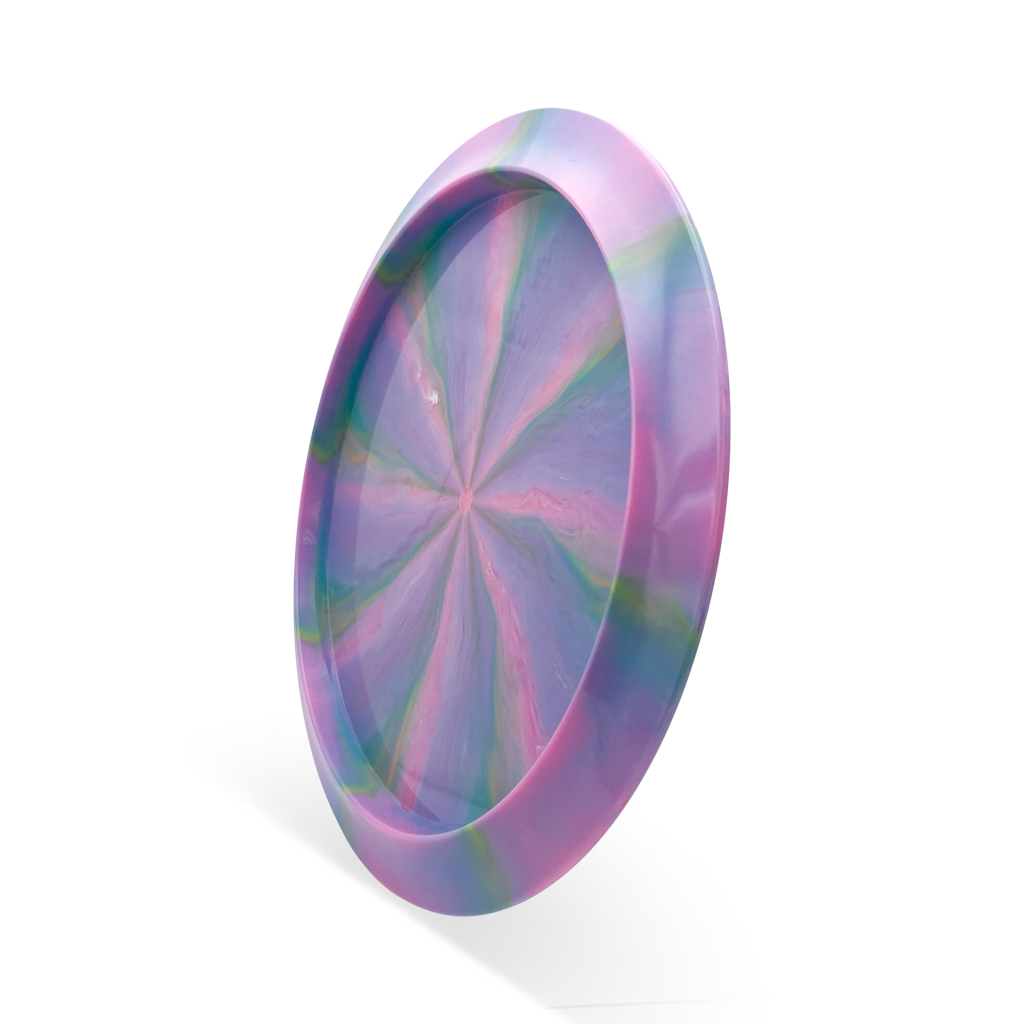
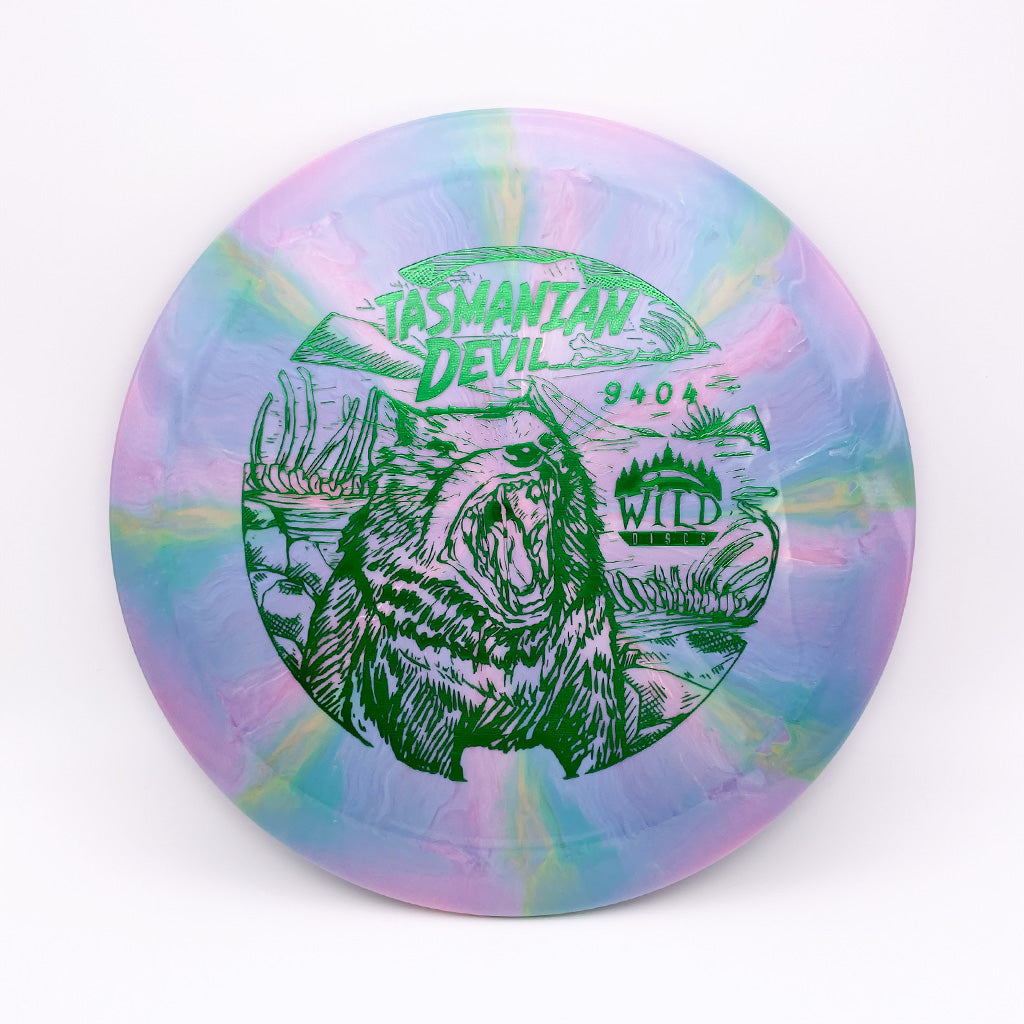
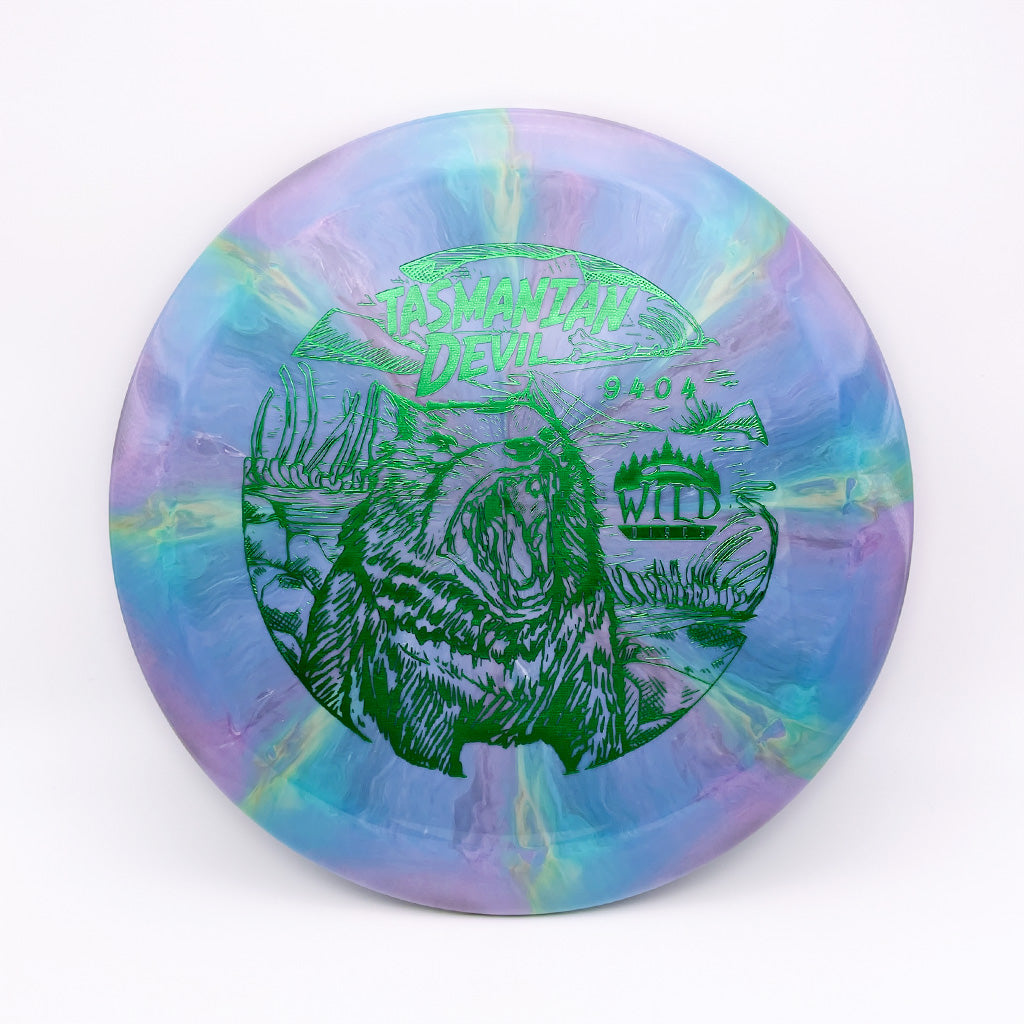
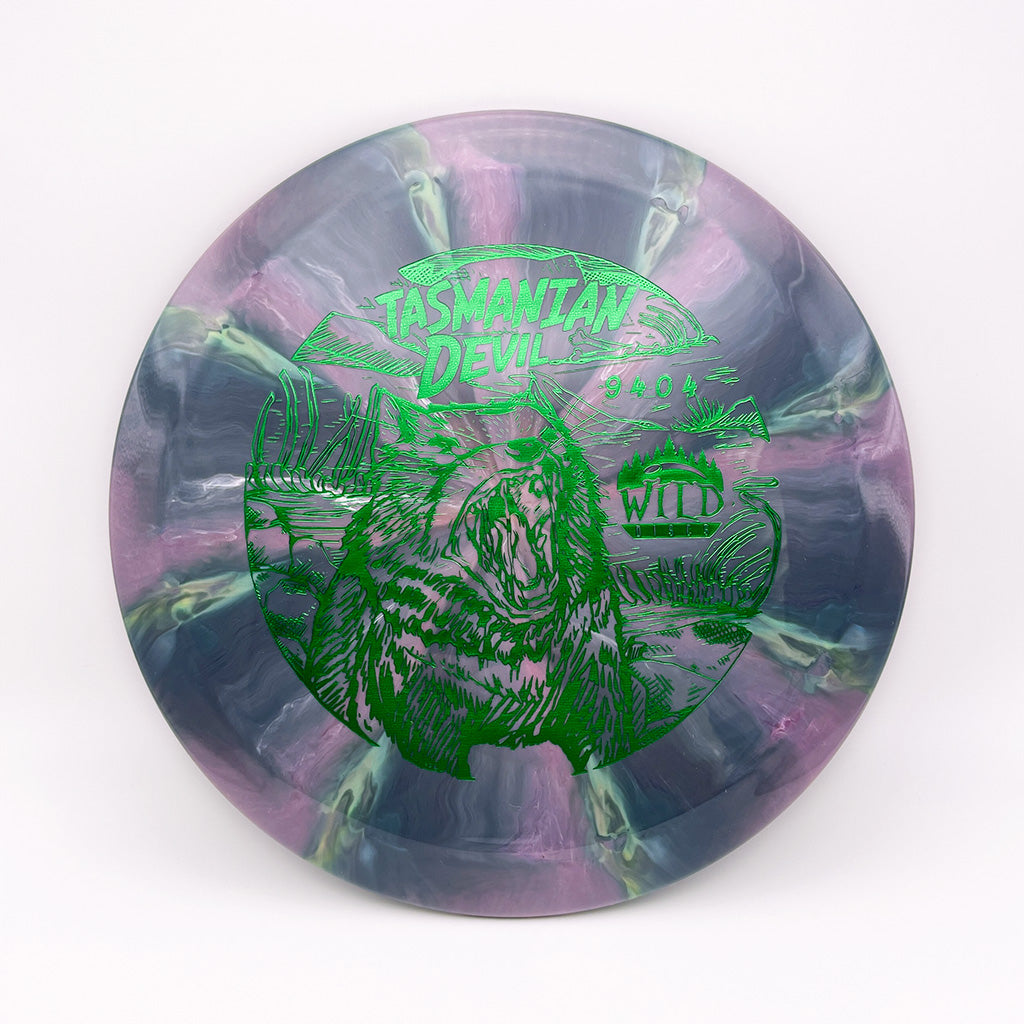
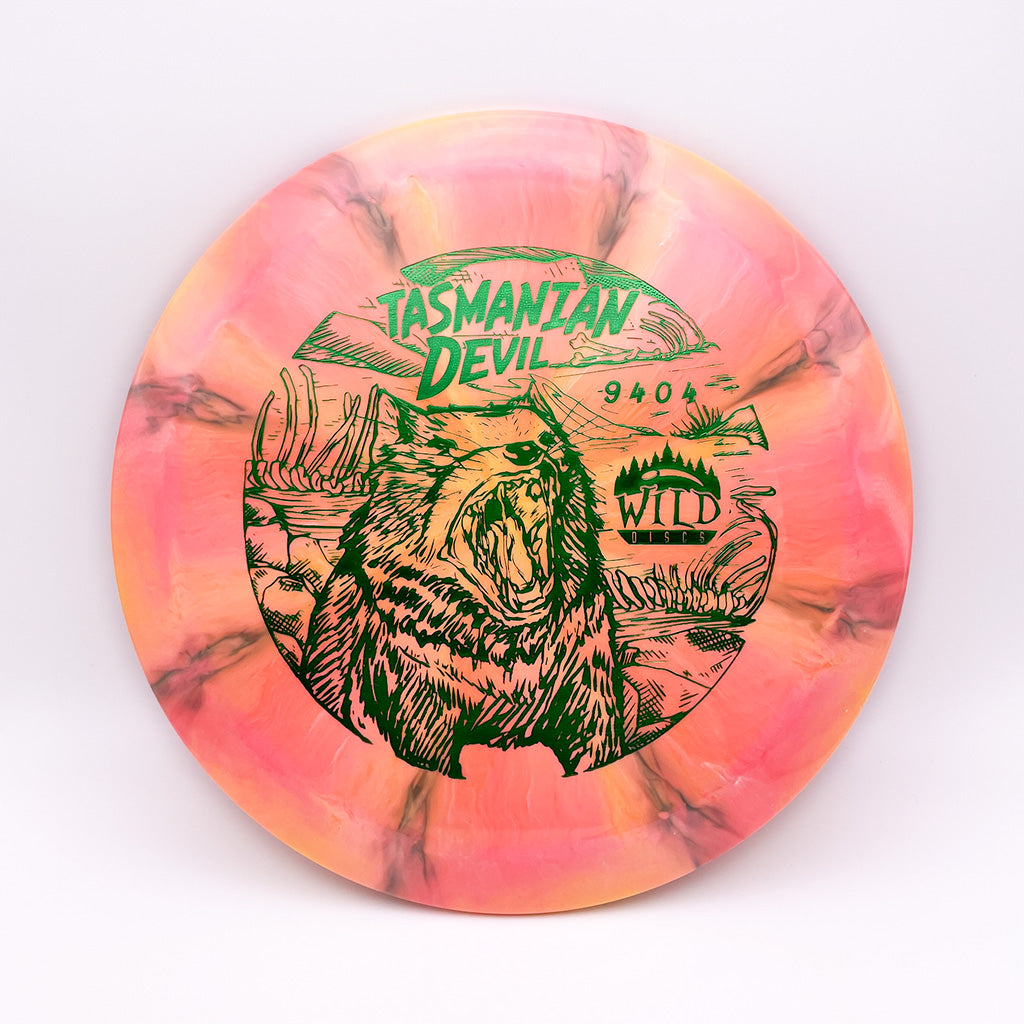
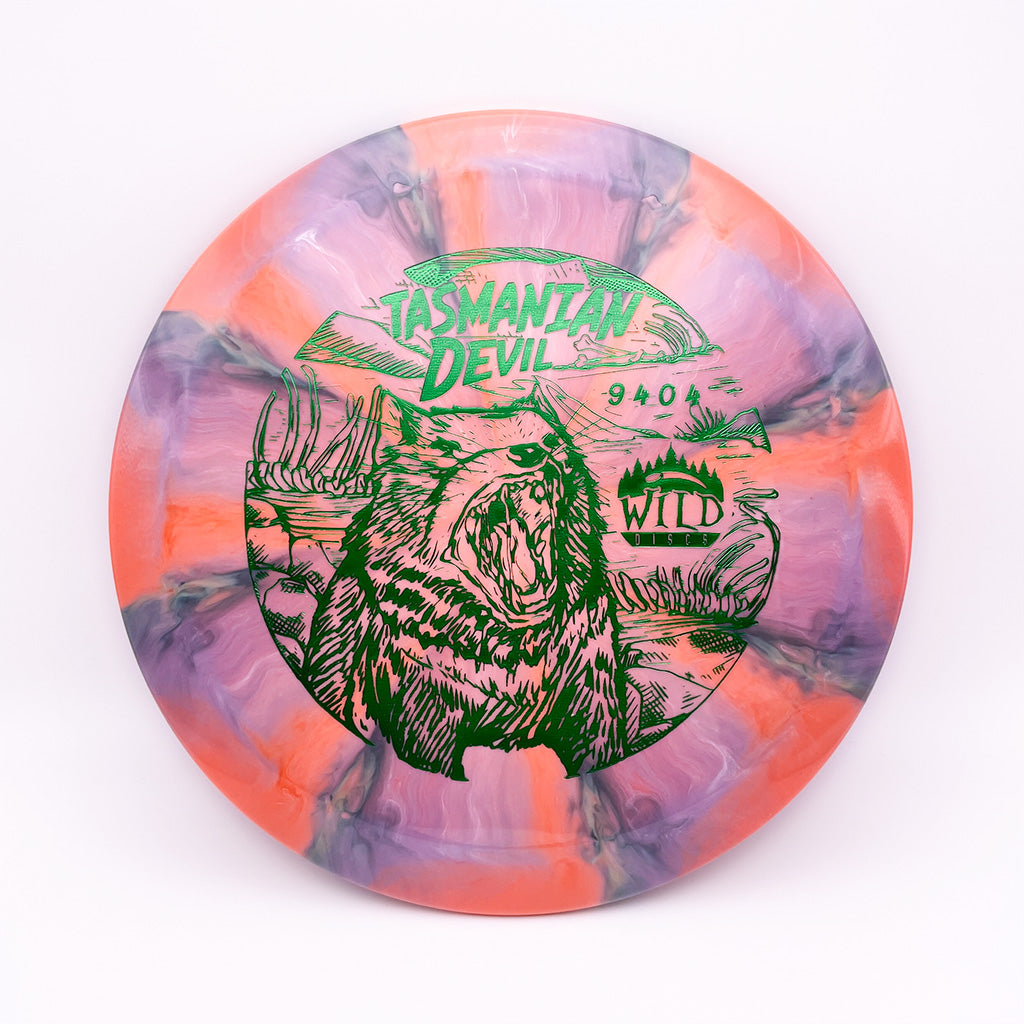
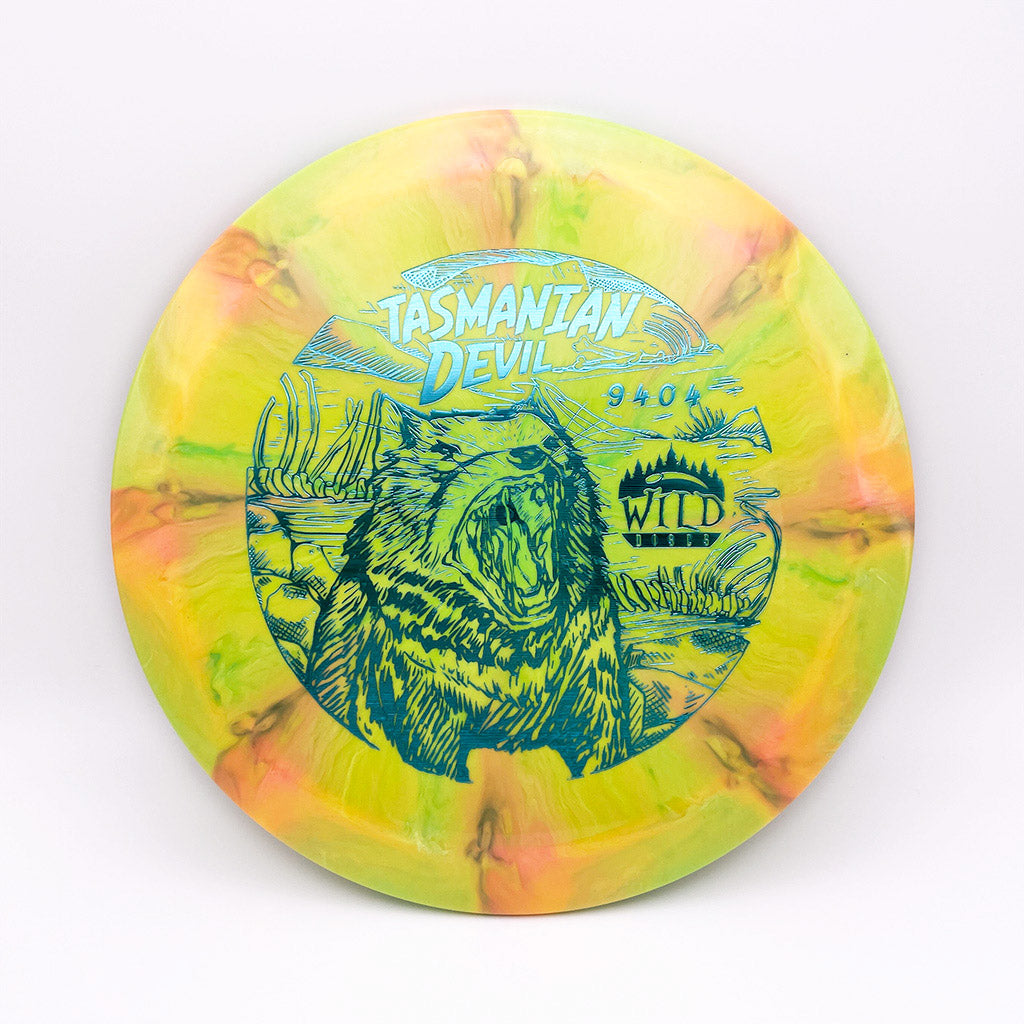
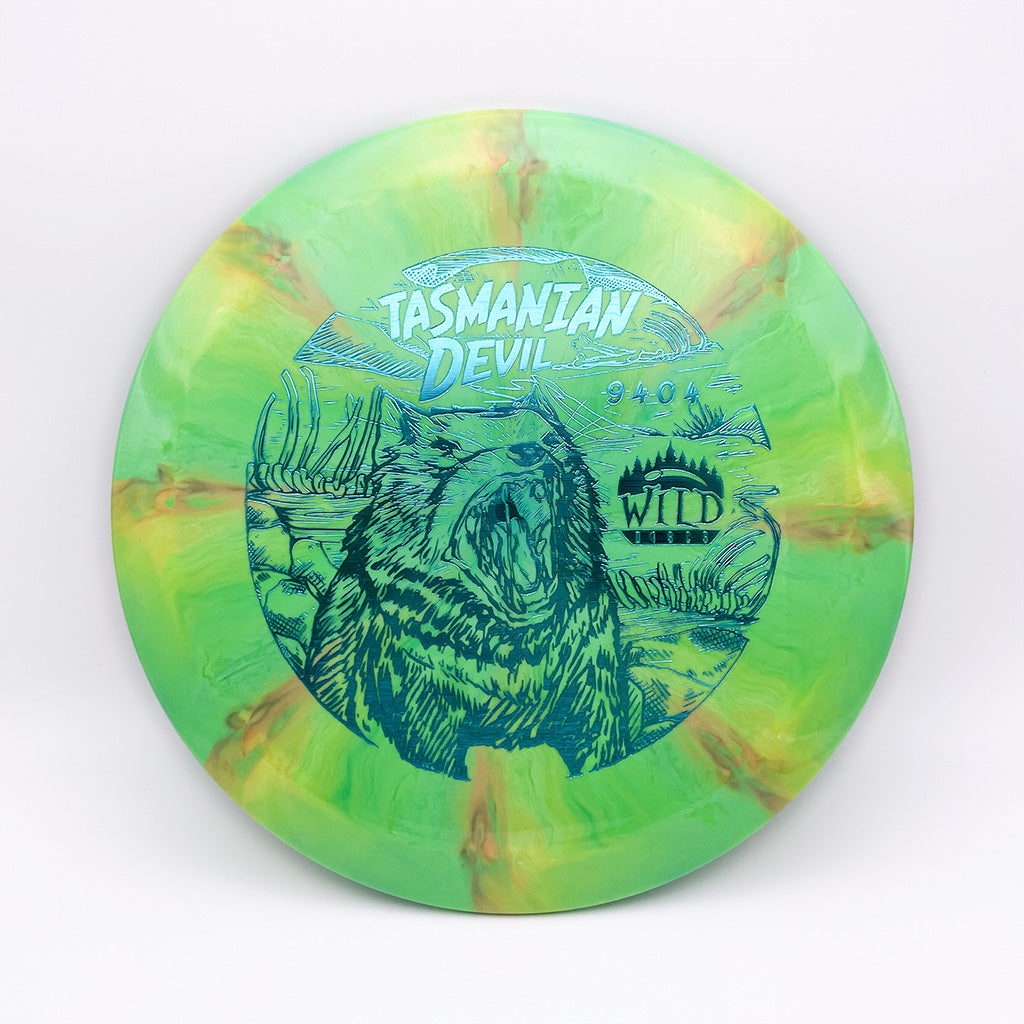
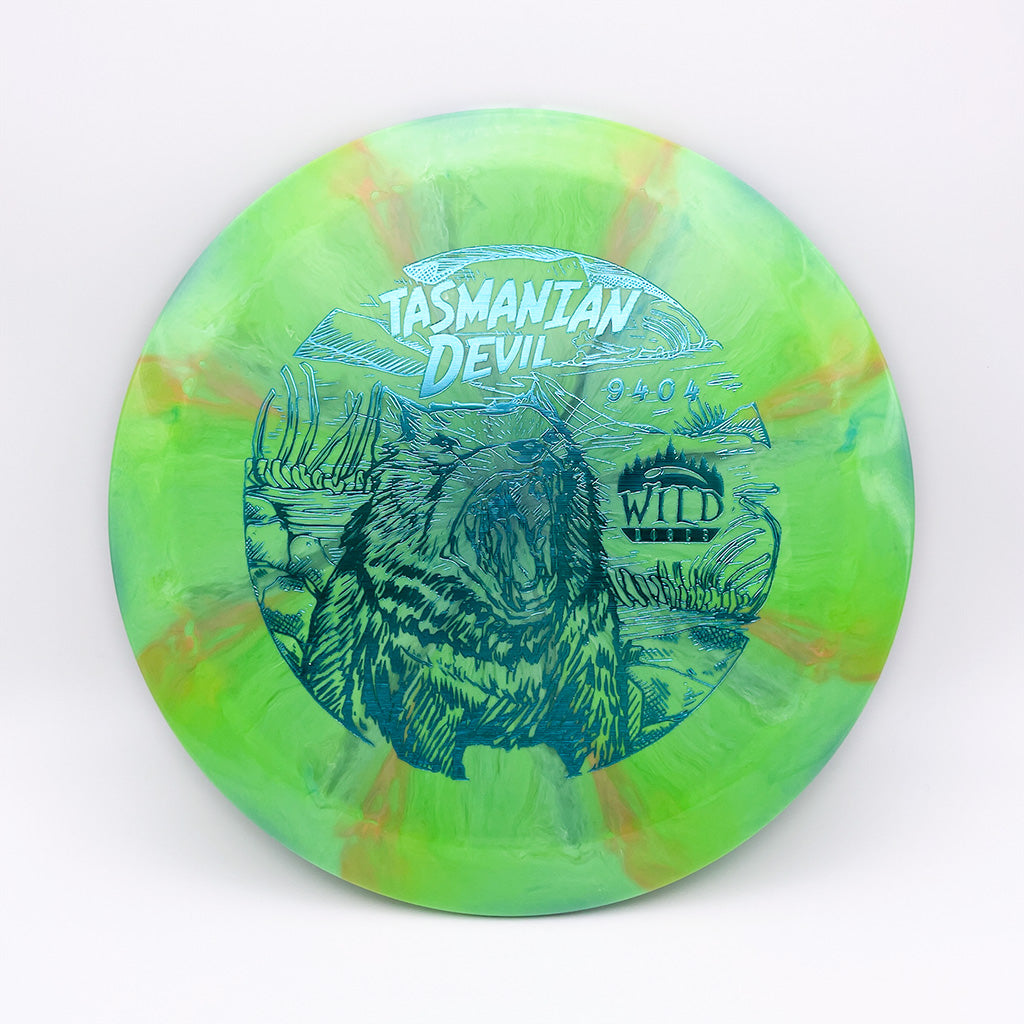
Wild Discs
Lava Flare Tasmanian Devil
Very Overstable Control Driver
9 | 4 | 0 | 4
▌ Color accurate photos of every disc
▌ Discs ship inside collector bags in a box
▌ $6 flat rate shipping
▌ Free shipping over $75
▌ Most orders ship same day
The Tasmanian Devil
The Tasmanian Devil is Wild Disc's most popular mold, and it was updated in 2023 updated to be flatter, more consistent and the control driver you can rely on in any weather condition.
The "Taz" is a very overstable control driver capable of handling the highest arm speeds and battling through any headwind you may find yourself up against. You can trust the Taz to never turn over, unless forced to, and it will always have a very reliable strong fade finish. Players have found this to be a must have disc for sidearm shots.
Lava Flare Plastic
Wild Discs' Lava blend is produced with a hi-tech plastic that provides outstanding performance and durability. Designed for professional players, Lava blend is their highest quality plastic with great grip and a slightly soft feel. Whether used in heavily wooded situations, or on extremely rugged courses, the Lava blend plastic will continue to perform predictably and avoid damage better than any other plastics. Flare is a unique blend featuring several different colors causing a unique look where no two discs are the same.
Wild Discs donates over 5% of their proceeds towards aiding wildlife conservation efforts.

Wild Discs Tasmanian Devil
Tech Specs
- Diameter: 21.2 cm
- Height: 1.8 cm
- Rim Width: 2.0 cm
- Rim Depth: 1.1 cm
- Bead: None
PDGA Approved: Jan 9, 2023







